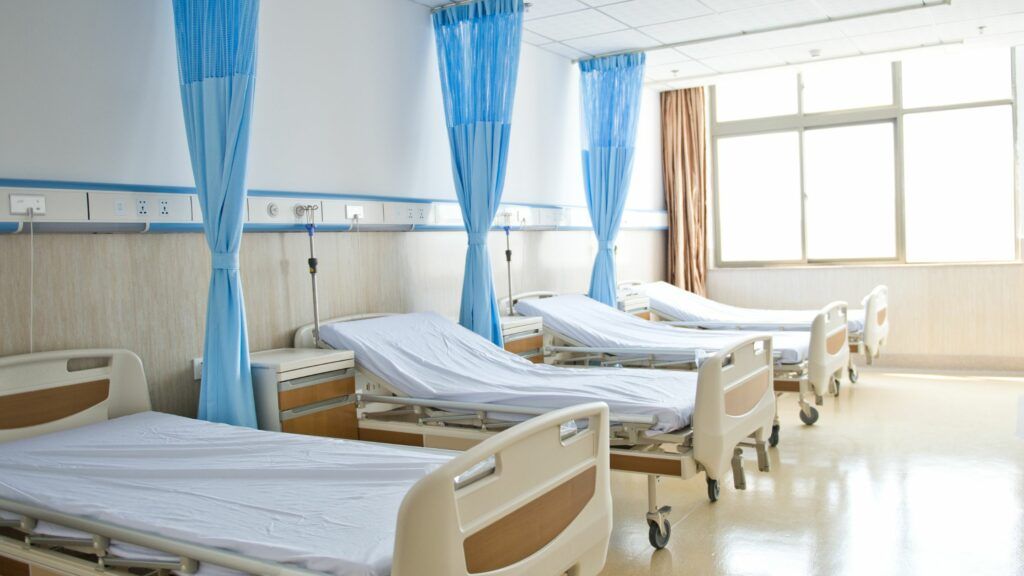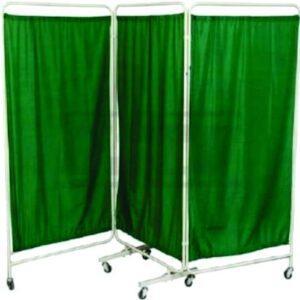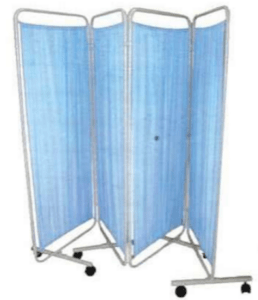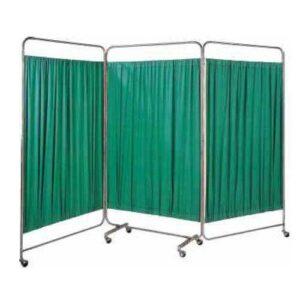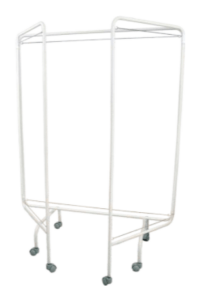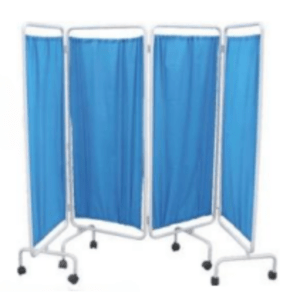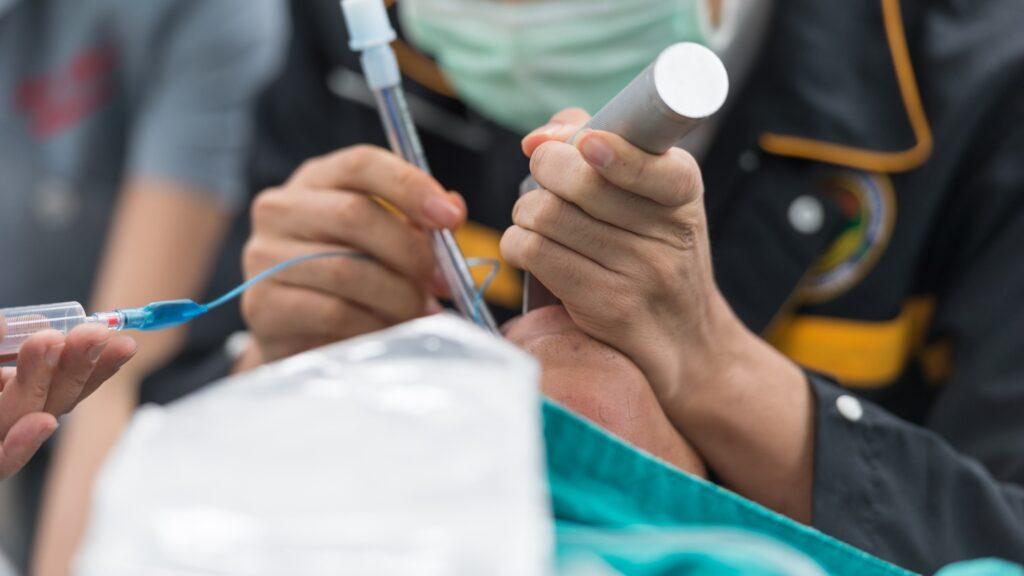In the dynamic world of healthcare, where patient comfort and privacy are paramount, innovative solutions take center stage. hospital screens, often overlooked yet indispensable, stand as silent guardians of patient dignity and confidentiality. These unassuming dividers play a pivotal role in creating discreet spaces within bustling medical environments, ensuring that patients receive care in an atmosphere of respect and personal space.
From the soothing ambiance of recovery rooms to the urgency of emergency care units, hospital privacy screens offer a versatile solution that goes beyond mere physical separation. In this blog, we embark on a journey to explore the diverse realms of hospital privacy screens. We’ll delve into their types, functions, and the remarkable impact they have on patient experiences and healthcare efficiency. So, let’s pull back the curtain on these unsung heroes and discover the ways they shape modern healthcare practices for the better.
Types of Hospital Screens
There are several types of hospital privacy screens designed to ensure patient confidentiality and create private spaces within medical facilities.
- Folding Privacy Screens: These are versatile and can be easily folded and moved to different areas as needed. They are commonly used around patient beds in shared rooms.
- Cubicle Curtains: Also known as hospital curtains, these are hung from ceiling tracks around patient beds to provide privacy in shared rooms. They are available in various colors and patterns.
- Mobile Privacy Screens: These are mounted on wheels, allowing healthcare staff to move them easily from one location to another. They are particularly useful in creating temporary private areas.
- Disposable Privacy Screens: These are lightweight screens often used in emergency situations or isolation areas. They are designed for single-use to prevent cross-contamination.
- Rolling Privacy Screens: Similar to mobile screens, these can be rolled into place. They are commonly used in areas like examination rooms or to create private spaces in open ward settings.
- Partition Screens: These larger screens are used to create distinct sections within a room. They can be helpful in creating private spaces for multiple patients in a shared area.
- Isolation Privacy Screens: Designed to provide a barrier between patients to prevent the spread of infections, these screens are often used in areas where contagious patients are treated.
- X-Ray Privacy Screens: Used in radiology departments, these screens contain lead lining to shield medical staff from radiation during X-ray procedures.
- Surgical Privacy Screens: These screens are used in operating rooms to create a sterile barrier around the surgical site, maintaining a clean environment while allowing medical staff to observe the procedure.
- Visiting Area Privacy Screens: Placed in waiting areas, these screens offer privacy for patients and their visitors during consultations or discussions.
- Clear Plastic Privacy Screens: These screens offer visibility while still creating a physical barrier, making them suitable for areas where continuous observation is necessary.
- Acoustic Privacy Screens: These screens not only offer visual privacy but also help dampen sound, contributing to a quieter and more comfortable environment.
The specific types of privacy screens available may vary based on manufacturers, facility needs, and regional preferences.
Benefits and Applications of Hospital Screens
Hospital screens, often overlooked components of healthcare environments, bring a multitude of benefits and find versatile applications across various medical settings. These unassuming dividers play a crucial role in ensuring patient comfort, privacy, and effective care delivery. Let’s dive into the key advantages and the diverse applications of hospital screens.
Benefits
- Patient Privacy: Hospital screens create discrete spaces, ensuring patients have privacy during examinations, treatments, and recovery. This confidentiality fosters a sense of respect and dignity, contributing to better patient experiences.
- Infection Control: Screens act as barriers, helping prevent the spread of infections in shared spaces. This is especially important in the case of contagious patients or those with compromised immune systems.
- Patient Dignity: By providing a private space, screens enable patients to change, rest, or undergo procedures without unnecessary exposure. This preserves their dignity, even in challenging medical situations.
- Efficient Space Utilization: Screens enable efficient use of space in shared areas, allowing multiple patients to receive care simultaneously without compromising their privacy.
- Reduced Distractions: In busy medical environments, screens help minimize visual distractions for patients, enabling them to focus on their recovery or treatment.
- Flexibility and Mobility: Mobile screens can be easily moved to different areas, adapting to changing needs in emergency rooms, recovery areas, and clinics.
- Enhanced Communication: Screens can serve as a visual barrier during sensitive discussions between medical professionals and patients, fostering open and private communication.
Applications
- Patient Rooms: Hospital screens are commonly used around patient beds in shared rooms to provide individual privacy, even in close quarters.
- Examination Areas: Screens create private spaces for medical exams, ensuring patients feel comfortable and secure during assessments.
- Emergency Rooms: Screens are utilized to designate separate areas for patients awaiting treatment, maintaining privacy even in high-stress situations.
- Operating Rooms: Surgical screens create sterile barriers, allowing medical professionals to perform procedures while maintaining a clean environment.
- Isolation Units: In cases of infectious diseases, screens help isolate contagious patients, safeguarding others from potential exposure.
- Waiting Rooms: Screens offer visitors a level of privacy when discussing medical concerns with doctors or waiting for loved ones.
- Radiology Departments: Specialized screens with radiation protection are used to shield medical staff during X-ray procedures.
- Consultation Areas: Screens ensure confidential discussions between patients and medical staff during consultations.
- Recovery Spaces: Screens offer a calm and private environment for patients to recover after procedures or surgeries.
From preserving patient dignity to optimizing medical processes, hospital screens are indispensable tools that improve healthcare delivery across a wide range of settings.
Hospital Screens from Leading Indian Manufacturers
AF-580 Bed Side Screen Three Panels
ASKP SOLUTIONS, a renowned manufacturer and global supplier in India, offers the AF-580 Bed Side Screen Three Panels. This innovative product provides essential privacy for patients during medical procedures, contributing to their healing and recovery. The screen’s three-section MS tubular structure with 50 mm diameter castors ensures easy mobility and convenient placement.
YE – 190 Bed Side Screen (4 Panels)
Manufactured by YASHIKA ENTERPRISE India, the YE-190 Bed Side Screen (4 Panels) is a versatile and functional solution designed for medical settings, nursing homes, and home use. With its robust MS tubular construction and 19mm x 18G dimensions, it provides stability and durability. The folding design allows for easy setup and storage, making it highly portable. The bed side screen offers ample coverage and partitioning options with its four-panel design, ensuring privacy and versatility in various room configurations.
Bedside Screen C-6203
Manufactured by Carevel Medical Systems (Pvt) Ltd , the Bedside Screen C-6203 is crafted with CRCA pipes and equipped with 5 cm castors, ensuring easy mobility. The powder-coated finish enhances its durability, making it suitable for healthcare environments.
PMT 6606 Three Fold Bedside Screen
PMT Healthcare Private Limited, a leading manufacturer and global supplier in India, presents the PMT 6606 Three Fold Bedside Screen. It features a CRCA tubular frame work, providing stability and strength. The inclusion of springs and one-piece cloth curtain simplifies installation. The epoxy powder-coated finish ensures resistance to corrosion, adding to its longevity. Equipped with non-rusting castor wheels, this bedside screen offers easy maneuverability.
SAM-612 Bedside Screen With Curtain (4 Panels)
Surgimill Medical Systems Pvt. Ltd., an Indian company specializing in medical equipment, introduces the SAM-612 Bedside Screen With Curtain (4 Panels). This portable privacy screen is designed to ensure patient privacy in hospital rooms. Its folding design allows for easy storage, and the adjustable curtains provide maximum privacy. The M.S Tubular Frame work with 19mm x 18G dimensions ensures stability, and the 25mm x 18G legs mounted on 5cm castors facilitate smooth movement. The pretreated and epoxy powder-coated finish enhances durability and simplifies maintenance. This versatile bedside screen is ideal for use as a partition or privacy screen in various healthcare settings.
Medzell: Pioneering the Future of Medical Device Promotion
Medzell is at the forefront of revolutionizing medical device promotion, spearheading innovative strategies to connect Indian medical device manufacturers with emerging markets. With its futuristic B2B platform, Medzell provides a dynamic marketplace that showcases cutting-edge medical devices and fosters global collaborations.
As a visionary platform, Medzell offers a comprehensive range of services, including product showcasing, market intelligence, lead generation, and networking opportunities. It serves as a bridge between Indian manufacturers and international buyers, facilitating seamless transactions and driving business growth.
Medzell’s commitment to quality and compliance ensures that only the highest standard medical devices are promoted on its platform. By leveraging advanced technologies, Medzell optimizes visibility and accessibility for manufacturers, enabling them to reach a global audience and expand their market reach.
Join Medzell in pioneering the future of medical device promotion, unlocking endless possibilities for Indian manufacturers and facilitating the advancement of healthcare worldwide.
Conclusion
In conclusion, hospital screens stand as vital pillars of modern healthcare, seamlessly merging technology with patient care. These unassuming devices play an integral role in enhancing communication, efficiency, and patient outcomes within medical facilities. From facilitating real-time information sharing among medical staff to empowering patients with educational resources, the versatility of hospital screens is truly remarkable.
As we navigate a rapidly evolving healthcare landscape, the significance of clear and concise information cannot be understated. Hospital screens not only provide a platform for instant updates and critical alerts but also foster a patient-centric environment where individuals can engage with their health journey proactively.
While we celebrate the undeniable benefits of hospital screens, we must also remain mindful of potential challenges, such as information security and privacy concerns. Striking a balance between technological innovation and safeguarding sensitive data will be pivotal as we harness the full potential of these screens.
In essence, the journey towards better healthcare embraces hospital screens as indispensable tools, elevating patient care, streamlining operations, and paving the way for a more connected and informed medical community.
